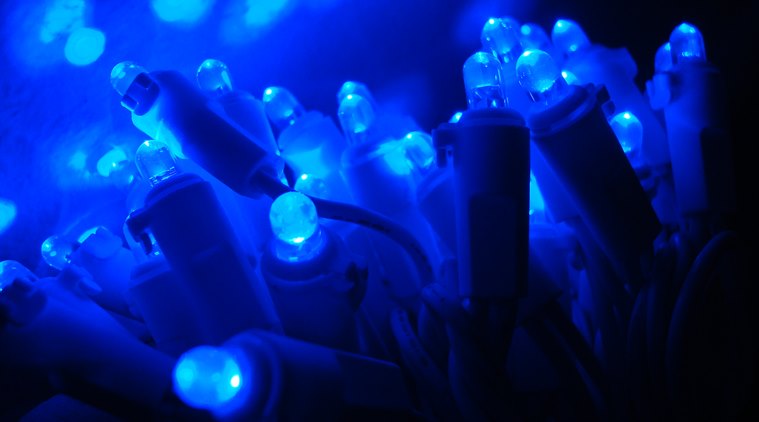
You may have heard of the Research at Prenceton university regarding the new Medicine to be available for use for Patients within no time... In short, the Medicine research got boosted up because of the Radioactive atoms that are introduced using LED lights... as @fahad06 addressed it in his latest post...

Now, there is a Problem... Let me tell you about this too...
MacMillan said, "Getting these radioactive atoms into the drug is not a trivial thing to do, People have developed long, sometimes month-long, two-month, three-month long sequences just to get a tiny amount of a substance with a few radioactive atoms."
However, this problem got resolved and published in "Science (A Journal)" on November 9... By using photo-catalysts, that responded to Blue LED... "It was a wacky idea! Fortunately, it worked," MacMillan said. "What we came up with was, if you shine light on them, could these photocatalysts actually remove the non-radioactive atom and then install the radioactive atom?"
They could.
MacMillan's technique uses "heavy water," which replaces the hydrogen (H) in H2O with tritium, a radioactive version of hydrogen that has an extra two neutrons per atom.
"If you just let your drug sit in the radioactive water and shine light on it with a catalyst, the catalyst will remove the atom which is not radioactive -- in this case it's hydrogen -- and replace it with tritium," he said.
All of a sudden, appending one of these nuclear marks takes hours rather than months, and the strategy takes a shot at numerous sorts of much of the time utilized mixes. The specialists have officially tried it on 18 economically accessible meds, and additionally hopefuls in the Merck sedate disclosure pipeline.
For intensifies that don't require radioactive labels, a similar one-advance process can swap in deuterium, a rendition of hydrogen with just a single additional neutron. These "steady names" (with deuterium) and "radio marks" (with tritium) have innumerable applications, in the scholarly world and medication revelation.
The effortlessness of this new approach has another ramifications, said Jennifer Lafontaine, the senior executive of combination and explanatory science for Pfizer in La Jolla, California, who was not engaged with the exploration.
Since the past procedure was so asset escalated, deuterium-or tritium-named particles were regularly made for chemicals that were "very best in class in the medication disclosure process," she said. "This technique could along these lines open the way to prior and extended utilization of isotopic naming in tranquilize disclosure, essentially upgrading our capacity to examine sedate applicants on a more profound level, and over a scope of uses."
This new strategy use the rising field of photocatalysis spearheaded at Princeton and connected it to yet another new field, MacMillan said. It has evident money related an incentive also, however he waved that off.
The good thing is that No one is Patenting this method because they want it to be available for everyone
"This is a great example of a Princeton-industrial collaboration that benefits science and all of society," Davies said.
The research was supported by the National Institutes of Health (R01 GM103558-04 to D.W.C.M., Y.Y.L. and K.N.), a graduate fellowship from the Agency for Science, Technology and Research (Y.Y.L.), and the Japan Society for the Promotion of Science for a postdoctoral fellowship (K.N.).
Story Source:
Materials provided by Princeton University. Note: Content may be edited for style and length.
Journal Reference:
Yong Yao Loh, Kazunori Nagao, Andrew J. Hoover, David Hesk, Nelo R. Rivera, Steven L. Colletti, Ian W. Davies, David W. C. MacMillan. Photoredox-catalyzed deuteration and tritiation of pharmaceutical compounds. Science, 2017; eaap9674 DOI: 10.1126/science.aap9674
Please Upvote
Source: https://www.princeton.edu/news/2017/11/09/leds-light-way-better-drug-therapies
Not indicating that the content you copy/paste is not your original work could be seen as plagiarism.
Some tips to share content and add value:
Repeated plagiarized posts are considered spam. Spam is discouraged by the community, and may result in action from the cheetah bot.
Creative Commons: If you are posting content under a Creative Commons license, please attribute and link according to the specific license. If you are posting content under CC0 or Public Domain please consider noting that at the end of your post.
If you are actually the original author, please do reply to let us know!
Thank You!
More Info: Abuse Guide - 2017.
Downvoting a post can decrease pending rewards and make it less visible. Common reasons:
Submit
I'm new here... Started blogging... I didn't know the rules,,,!! you must atleast have given me the warning... Now, I can't even upload images because of reputation...
Now, I'm so heart broken... :/
Downvoting a post can decrease pending rewards and make it less visible. Common reasons:
Submit
Congratulations @meerab! You have completed some achievement on Steemit and have been rewarded with new badge(s) :
Click on any badge to view your own Board of Honor on SteemitBoard.
For more information about SteemitBoard, click here
If you no longer want to receive notifications, reply to this comment with the word
STOPDownvoting a post can decrease pending rewards and make it less visible. Common reasons:
Submit
Hello!
It seems that your story comes originally from here. Please consider citing your sources explicitly (giving the link). We can note for instance that several paragraphs are taken as such from the source...
Downvoting a post can decrease pending rewards and make it less visible. Common reasons:
Submit
Thanks for the comment... :) I'll be careful next time...
Downvoting a post can decrease pending rewards and make it less visible. Common reasons:
Submit
Nice
Downvoting a post can decrease pending rewards and make it less visible. Common reasons:
Submit